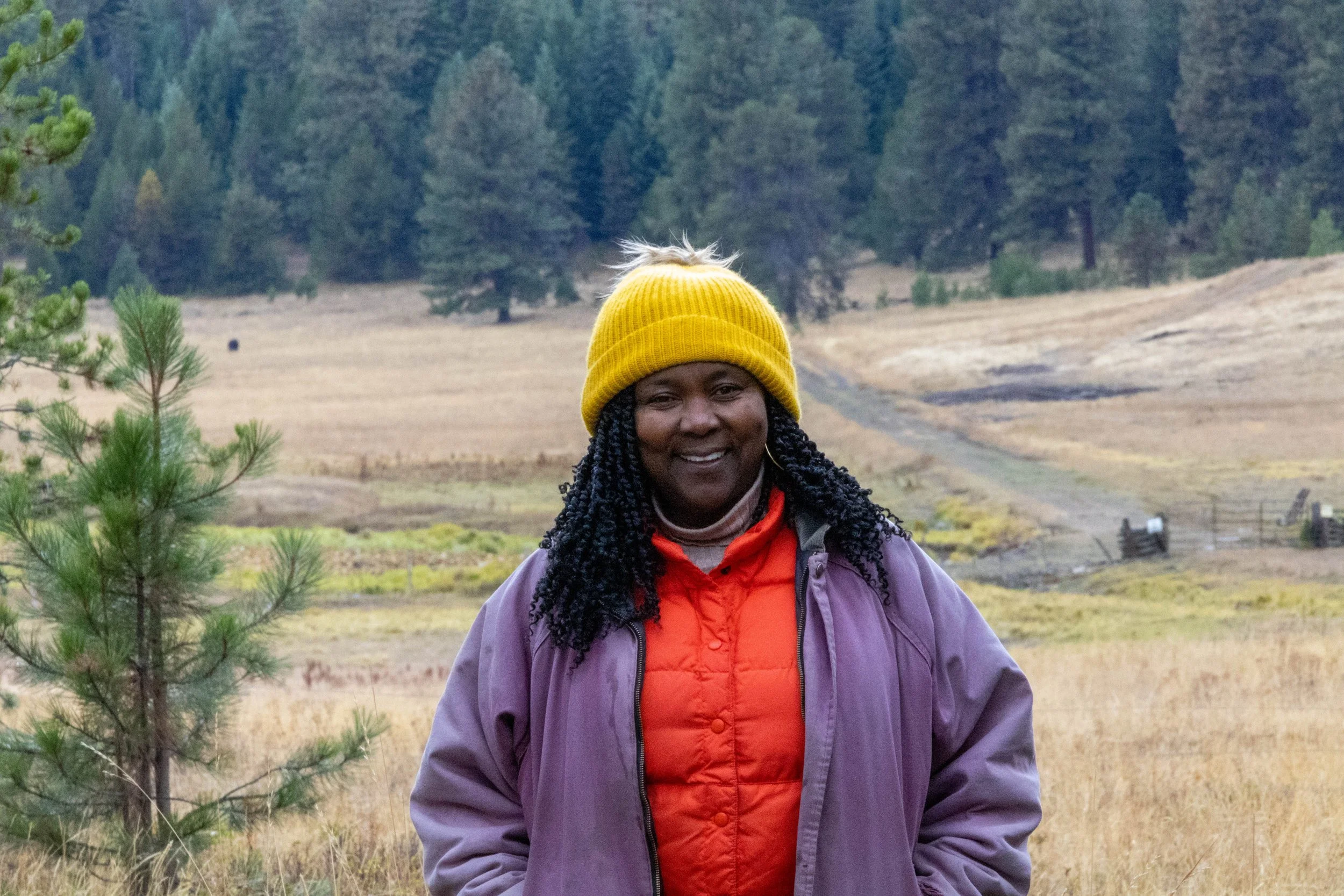Gwen Trice
Founder & Executive Director, Maxville Heritage Interpretive Center,
Joseph, OR/ Maxville, OR
September 10, 2024
Gwen Trice’s old blue truck led our caravan on a turn-off from the main logging road outside of Enterprise, OR. When we finally stopped, she climbed out and stood proudly on the wrap-around porch of a large log cabin, which we later learned was a reconstructed supervisor’s lodge. Leaning on her cane and beaming at us in the twilight, she welcomed us all warmly to Maxville.
Maxville was a logging boom-town operated by Bowman-Hicks Lumber Company from 1922 to 1933. It was also a heavily segregated town; despite the fact that many of the Black and White workers did the same type of labor, they lived on opposite sides of town in vastly different housing situations.
Although the town’s site holds many memories of hurt and oppression, it also holds opportunity for regrowth. As archeologists excavate pieces of Maxville’s past, Gwen is working on shaping its future. For our group, Maxville took on the role of an emotional catalyst. Sitting in the great-room of the supervisors lodge, Gwen guided us through conversations about our roots. Without knowing it, we were engaged in healing our own trauma and learning more about each other. Through emotional connections, silly games, and improvised skits, we aided the realization of Gwen’s vision of Maxville as an “amnesty space”.
Gwen has a personal connection to the Maxville of old: her father and grandfather were among the 40-60 Black workers recruited by Bowman-Hicks to log in the area. Soon after Bowman-Hicks abandoned the area, Gwen’s family moved to La Grande, Oregon, where she grew up amidst the societal and legal racism of the mid-twentieth century.
As she spoke about her experiences as a Black child in that era, her slow, measured voice often became emotional. “My process includes my tears,” she told us, chuckling and wiping her eyes. For Gwen, the struggles of Maxville’s legacy are still raw. Through her work in public schools with the program “Seeding Hope and Healing”, Gwen gets to meet many students of color who have had experiences of race-based oppression. She strives to create a space where they can work through that trauma, “building muscle tone” to come out of difficult experiences.
Our time with Gwen was revolutionary. Her grounding presence inspired an emotional vulnerability and honesty of the highest caliber in her listeners, and we all share Gwen’s hope that many more people will be able to engage with Maxville in such a meaningful way. Gwen believes the continued un-earthing and reconstructing of Maxville’s past will create a haven for education, artistry, and authentic love of people and place.
by Carlie Johnson

